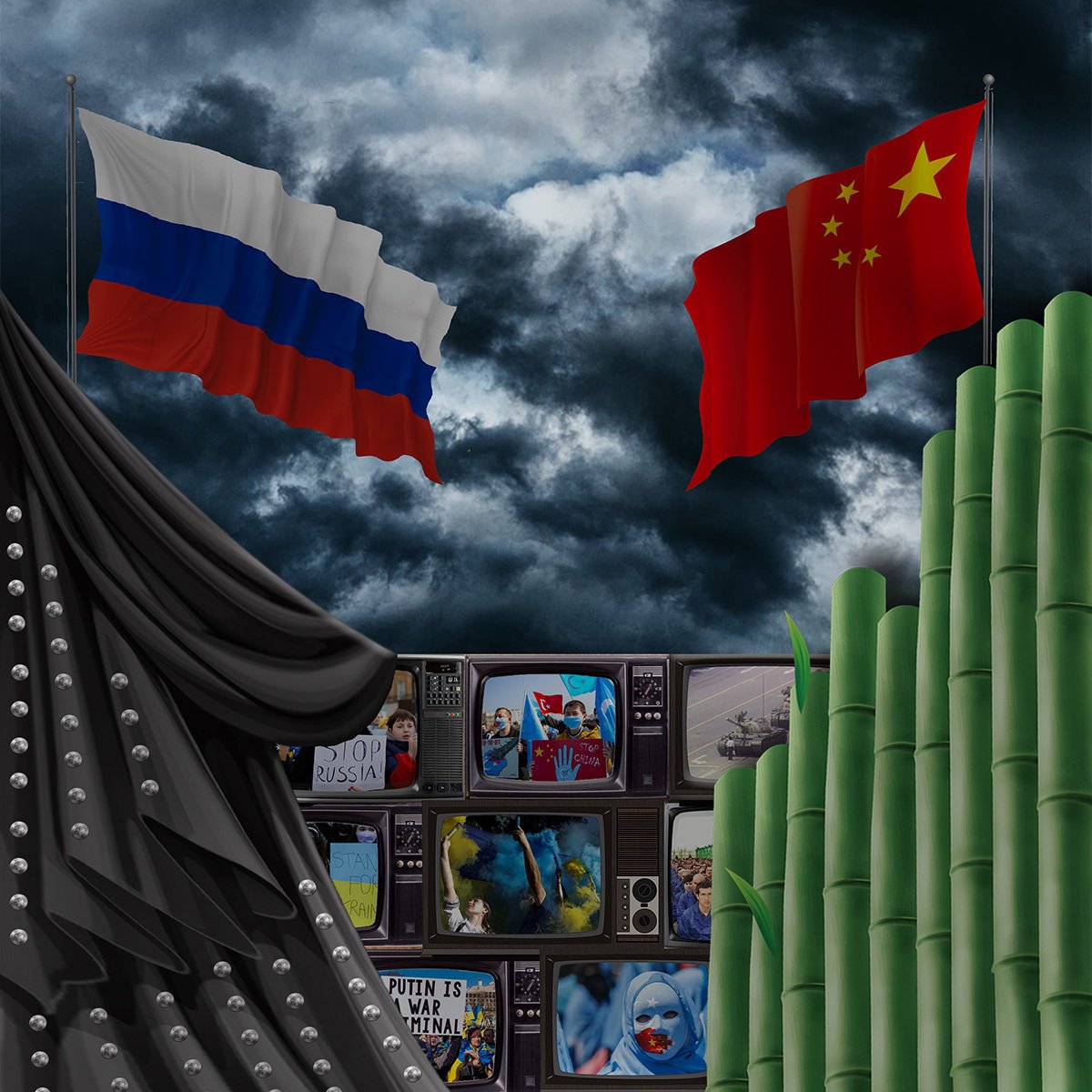It is hard to read or listen to an article on the Ukrainian invasion without it beginning with the lines: “The world as we knew it is over.” Tanks rolling through the streets of a European-style city, nuclear saber-rattling, as well as disruptions of everything from energy to wheat, make the headline plausible. The recent gathering in Europe of western NATO allies was epoch-making.
Not to take the focus off the horror of the Ukrainian struggle for survival or turn away from the slaughter of civilians and the plight of the refugees, however, it might be useful to understand how the Western world of commerce, markets and investing failed to see what was obscured but visible through the windshield—and now is glaringly obvious in the rear-view mirror.

From my perspective, that would be the rise of one-man rule authoritarianism and its game-changing impact on the global economy.
In my investing lifetime, one of the major themes has been the prominence given to emerging markets. The behemoth in this class is, of course, China. According to a Bloomberg article, China has accumulated over $120 trillion in wealth and is responsible for almost 20 percent of global GDP. Now the second largest economy, it has been responsible for over 25 percent of all global growth in the last decade. Russia is a very distant 16th, but boasts global companies like Gazprom, which attracted California’s retirement plans as investors.
Western banks, from no-risk-too-great Goldman Sachs to trillion-dollar passive indexer BlackRock, all relied on the same fundamental assumption—rational leaders would continue to utilize global liquidity flows to fund their economies. Commerce was king and political power and survival depended on rising living standards and an expanding economy.
Vladimir Putin and Xi Jinping have shown us how wrong this was. It turns out that ideological, nationalistic, historical and personal motivating forces have superseded commerce-driven ones. This is beyond disturbing; it is mind shattering, because it means American investors continue to fund their own demise.

Revenue from countless Starbucks and McDonalds abroad, plus global auto manufacturers, not to mention the Foxconn Apple factories in China, allow strongmen to use this Western-funded prosperity to modernize and vastly expand their: nuclear arsenal (and advanced hypersonic missile delivery systems), conventional weapons, cyber-attack capabilities and territory (in defiance of negotiated treaties and recognized boundaries). They also fund and encourage global political oppression, create instability and even work hard to foster discord in America and its democratic allies by interfering in political campaigns and sowing internet meme chaos. In other words, as Gordon Chang, one of the world’s leading China experts, has repeatedly written, the post-Cold War era of peace is over, replaced by a new era of open competition and military conflict.
Exhibit A of the awakening to this cycle of destruction is the hasty retreat of the 400 companies that did business in Russia. They may be a total write-off, as Putin has threatened to nationalize the “traitors.” Corporate behemoths, like Oracle and Renault, can easily discount their Russian losses. They were relatively insignificant. Writing off China will be harder.
In an echo of Japan’s late 1930s aggression, China is expanding its Pacific battlefield footprint shoal by shoal, island by island. Just like Putin’s broken promise of never invading Ukraine, China has recently broken its own promise not to militarize the Spratly Islands. As the top U.S. Indo-Pacific commander John C. Aquilino, recently stated in The Guardian that we are witnessing “the largest military buildup since WWII.”
This is a sobering moment for the West’s commerce-driven institutions and political philosophy. Investors must ask themselves many questions. The first two are: 1) How much conviction do I have that one-man authoritarian rule enforced by total information control and draconian penalties for differing opinions is a conducive climate for investment? 2) More profoundly, are my investments in these regimes actually funding the destruction of my way of life? Is the wealth generated by my investments being used to build more weapons of mass destruction, satellite and space-based armaments? One that has formed alliances with nations bent on destroying me?
The Western investment world has been keenly focused on ESG. Investors do not want to fund climate degrading, employee exploitive and racially biased companies. Assets in ESG have risen astonishingly. Investors have allied their moral values with their wallets. Longtime China watcher and legislative aide James Stuber, author of What if Things Were Made in America Again calls for a revolution in our thinking and priorities when it comes to all personal spending. He was recently a guest on my podcast, and his views can be heard here.
Perhaps it is time to focus on what I’m labeling ‘FCD’ investments. The F is for freedom, the C for cooperation and the D for disarmament. Why put your assets into countries that jail anyone with a differing opinion, or one that confronts the world with aggressive policies, or one that is arming itself to the teeth?
In summation, for too long Western thinking has been naïve, believing that a rising standard of living and a consumer-based lifestyle will encourage foreign countries to plan a peaceful future. Recent events have shown exactly the opposite—that rising economic strength has empowered authoritarian leaders to expand their nationalistic militaristic vision. Authoritarians have chosen military aggression over the consumer experience.
I don’t know the path down this treacherous mountain of delusion. I do know that continuing to climb it will only hasten the day of regret. Tragically, as the Russian invasion of Ukraine has shown, all the fast-food chains, Tesla factories, Louis Vuitton stores and Disney theme parks cannot stop an unchecked leader from a militaristic march of destruction.







